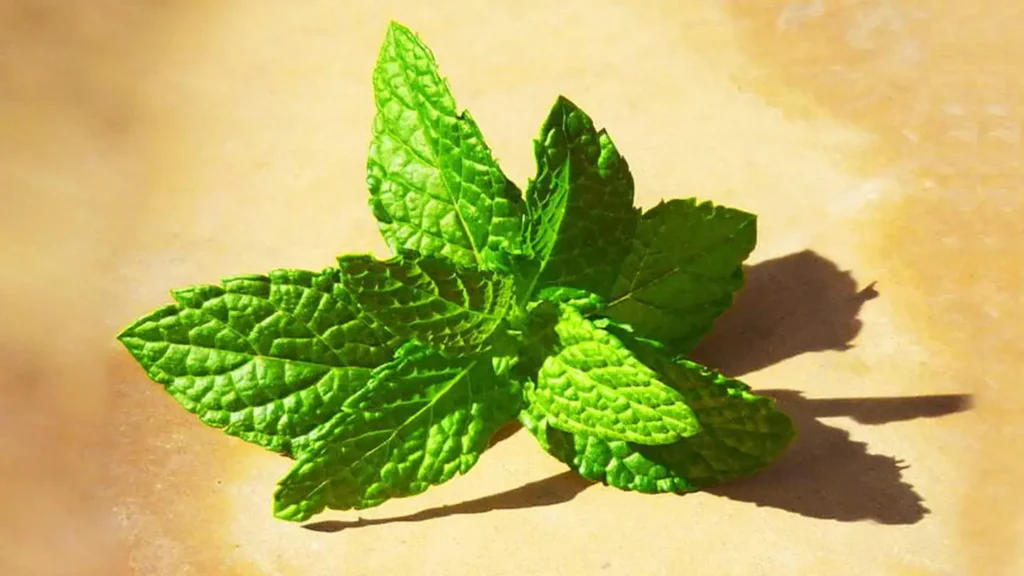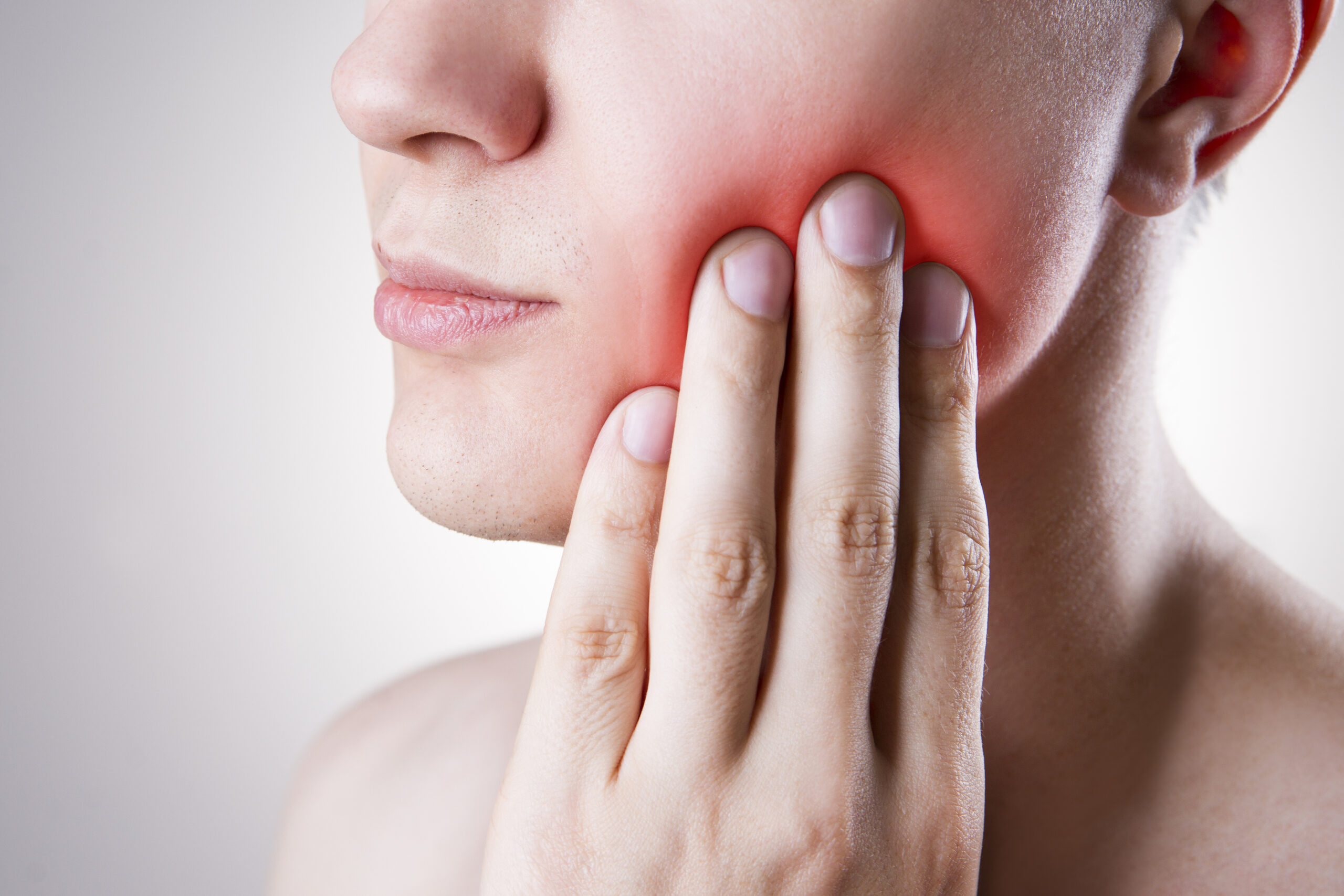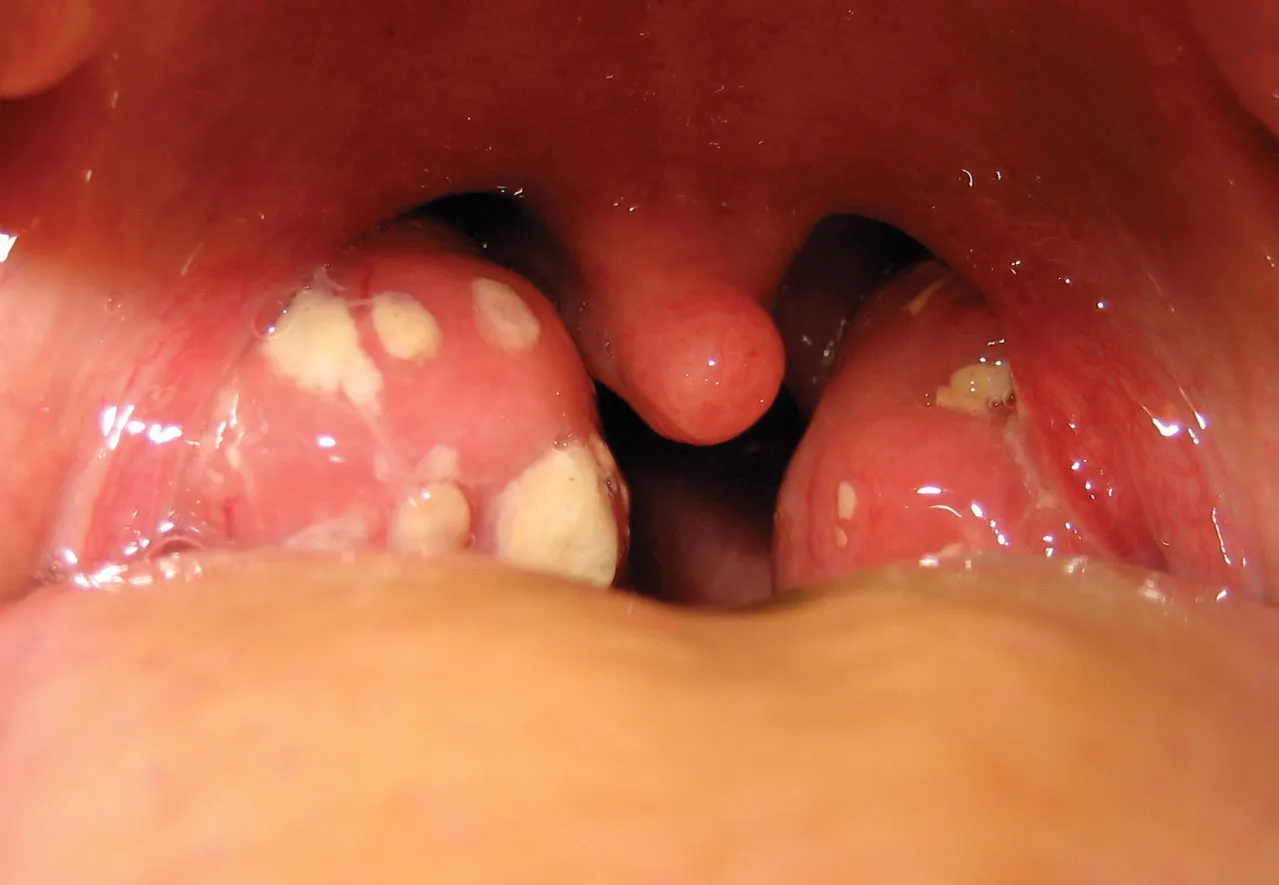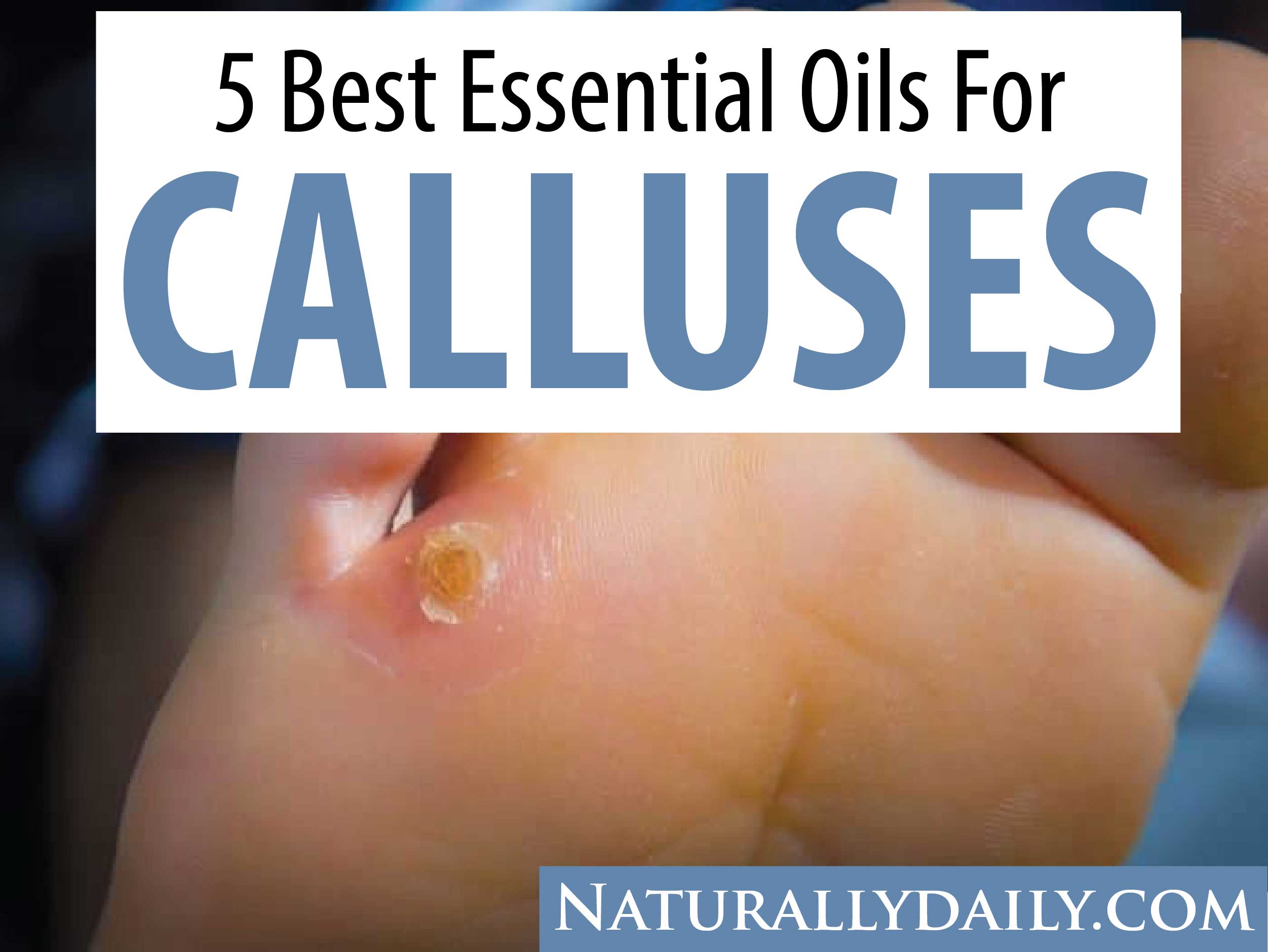Gingivitis is a common periodontal disease that causes inflammation and irritation of the gums. [1]
It occurs when plaque sticks to the teeth and creates a microbial biofilm, usually due to poor oral hygiene. [1, 2]
It doesn’t have visible signs, so you may not know that you have gingivitis until it leads to periodontitis, a more severe gum disease. [1, 3]
Gingivitis is a severe gums problem that can even lead to tooth loss [1] or other critical issues if you don’t take care of it.
But no worries, we have some natural home remedies which you can try to get rid of gingivitis.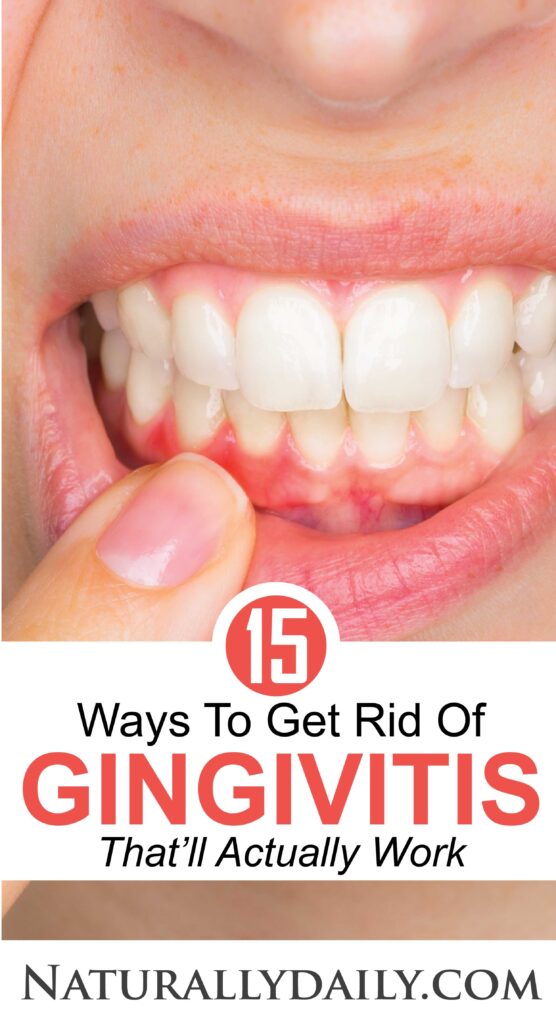
Home Remedies to Get Rid of Gingivitis
Apart from practicing good dental habits, you can prevent and cure gingivitis with the help of these natural methods.
1. Turmeric
Turmeric plays a vital role in dentistry with its antimicrobial and anti-inflammatory properties. [4]
In a pilot study in 2014, Indian researchers evaluated its efficacy as a treatment for gingivitis. [4]
In the trial, researchers asked 10 participants with severe gum infections to apply oral turmeric gel for 21 days. [4]
Results confirm that turmeric gel significantly reduced bleeding and inflammation in gingivitis sufferers. So, you should consider it as an alternative to standard treatment. [4]
Other studies prove that turmeric works just as fine as or more than medications and oral products dentists prescribe. [5, 6, 7]
Researchers from India compared the efficacy of 0.2 percent chlorhexidine gluconate and 0.1 percent turmeric mouth rinse in treating gum inflammation. [5]
60 individuals with mild to moderate cases of gingivitis are recruited to join the study. [5]
Researchers divided them into two groups with a choice of using either of the two products [5].
Both groups experienced a significant reduction in plaque and similar alleviation in symptoms and discomfort [5].
Mustard oil is an ancient remedy that you can use to clean your teeth and remove plaque effectively.
Regular massage with mustard oil can strengthen your gum. The stronger your gum is, the easier it will be to remove plaque.
Turmeric, mustard oil, and salt contain antimicrobial properties. They help carry away food particles from your teeth and restore the health of your gums.
How to use turmeric for gingivitis:
Mix 1 tsp of turmeric powder, ½ tsp of salt, and ½ tsp of mustard oil. Combine all ingredients. Apply the mixture to the gums and teeth. Gently massage for five minutes. Repeat the remedy twice a day.
2. Coconut Oil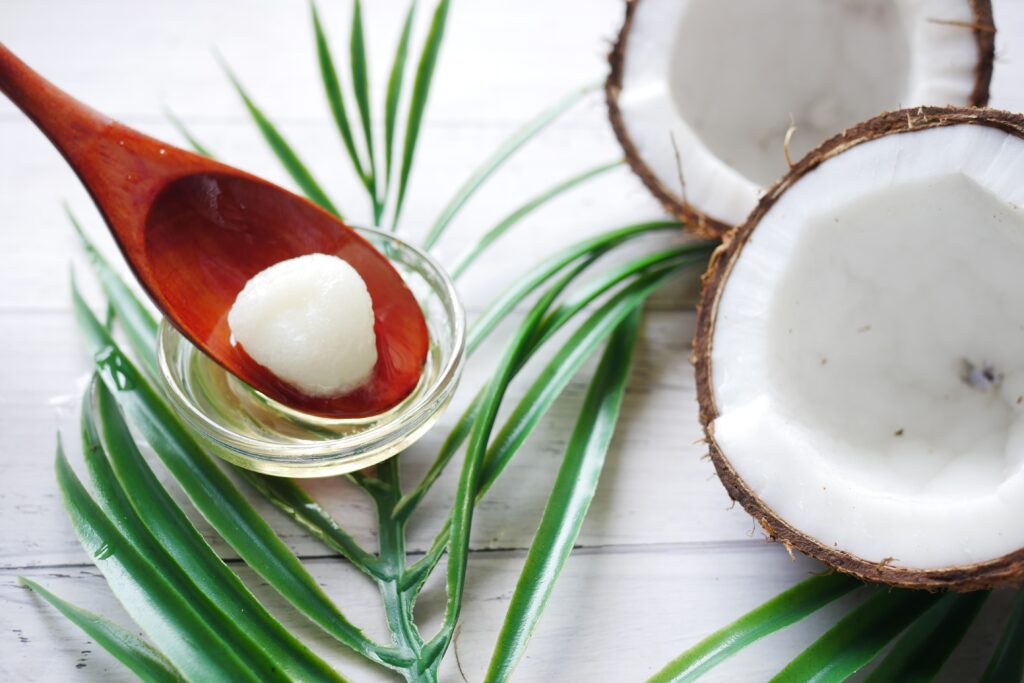
The coconut tree is an excellent source of natural products and even medicine. [8]
Its coconut oil extract, for example, can treat various health issues, including gingivitis.
In 2010, scientists from Bangkok, Thailand, found that oil pulling with coconut oil is highly effective in combating oral bacteria that cause gum problems. [9]
Researchers tested coconut oil’s antimicrobial effects along with those of corn oil, palm oil, sunflower oil, rice bran oil, sesame oil, and soybean oil. [9]
The researchers made use of biofilm models to conduct their investigation. [9]
A study shows that coconut oil’s antimicrobial properties inhibited the growth and spread of Candida albicans and Streptococcus mutants. [9]
These findings state that oil pulling with edible oils such as coconut oil can be an efficient way to maintain dental hygiene and prevent oral problems.
Here’s how you can use coconut oil to treat gingivitis:
Take one tablespoon of coconut oil and gargle with it for 15 minutes. Spit it out. Rinse mouth with warm water. Do this method every morning for one month.
Read More: Treat Eczema Naturally with Coconut Oil: 6 Simple Ways to Try Now
3. Lemon Juice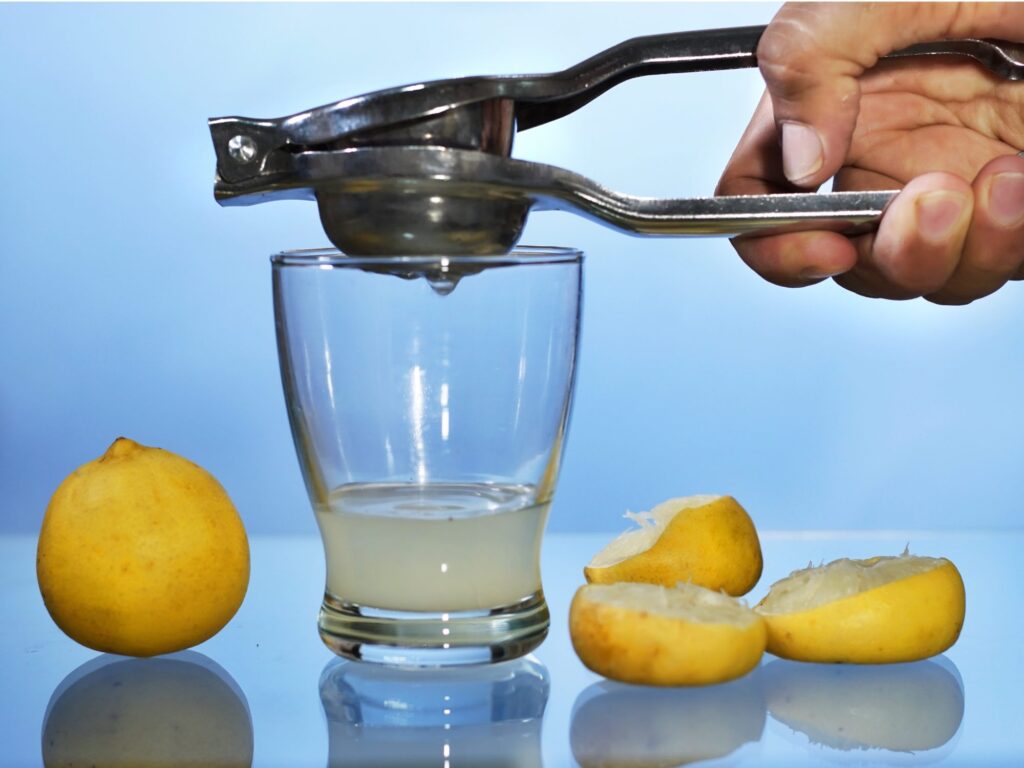
Scientists have been studying the efficacy of lemon juice as a treatment for gingivitis since the 1930s. [10]
Clinical data shows that the intake of lemon juice twice daily significantly improved the condition of gum disease. [10]
It’s because of lemon’s many nutrients, one of which is vitamin C.
According to research, vitamin C benefits people with gingivitis as it can tone down inflammation. [11, 12]
Note that vitamin C works by reducing oxidative stress.
Japanese scientists explain the link between oxidative stress caused by the overproduction of reactive oxygen species (ROS) and the development of gum disease. [11]
Vitamin C, a powerful antioxidant that can reduce oxidative stress, can also cure gum infection. [11]
An animal trial in which rat subjects induced with periodontitis received water with vitamin C and water without it proved that fact. [11]
Those who received vitamin C water showed significant improvement in their condition. [11]
On top of these, vitamin C can also power up the body’s immune defense, making it less susceptible to all sorts of diseases.
Natural lemon juice remedy for gingivitis:
Stir in one tablespoon of lemon juice to one glass of warm water. Gargle with this solution after brushing your teeth. Repeat twice a day. You may also drink one glass of lemon juice every day for one to two weeks.
Read More: Lemon Juice for Acne: 8 Simple Home Remedies
4. Cranberry Juice
Even the yummy cranberries help treat your gingivitis as well.
Cranberries are popular berries that are both yummy and beneficial for health.
Sugar-free cranberry juice is an excellent remedy for gingivitis. Cranberries’ proanthocyanidins fight off the bacteria that cause teeth and gum problems.
It prevents the bacteria from forming a layer on your teeth and gums and stops them from spreading too much.
Cranberries contain anti-inflammatory properties and potent antioxidants. Those components contribute to speeding up the healing of swollen gums and stopping bleeding.
How you may use cranberry juice to cure gingivitis:
First, make the juice of fresh cranberries and dilute it with some water. Then, drink two to three glasses of this juice during the day.
Read More: 12 Cranberry Juice Benefits (Backed by Scientific Evidence)
5. Aloe Vera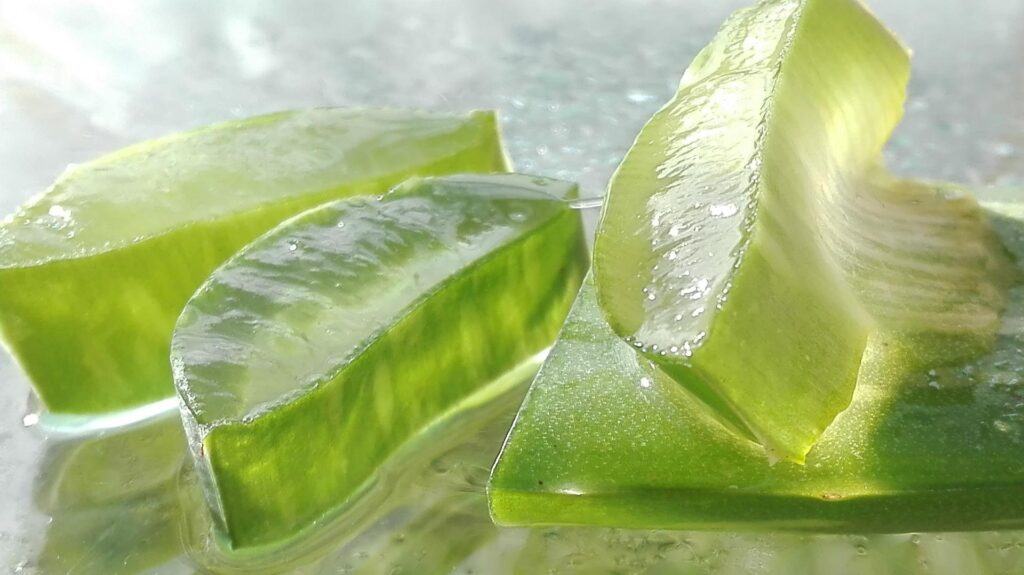
Ancient Egyptians called aloe vera the “plant of immortality.” It remains highly prized for its various purposes in health, dermatology, and dentistry. [13]
In a study published in the Journal of Indian Society of Periodontology, 120 participants who avoided brushing their teeth for 14 days used either 100 percent aloe vera gel, 0.2 percent chlorhexidine, or a placebo. [14]
After seven days, the trial showed that those who received aloe vera gel had a much lower rate of plaque and gingivitis than those who used chlorhexidine or the placebo. [14]
It can become an effective and affordable alternative to chlorhexidine with a few refinements in the taste of aloe vera.
Another study demonstrated similar positive results, showing significant improvement in the gum condition after using a dentifrice-containing aloe vera gel. [15]
Application of aloe vera gel on the gums can reduce gingivitis. Its anti-inflammatory and antimicrobial properties can inhibit oral bacteria such as Streptococcus mutants. [16]
Here’s a simple use of aloe vera to get rid of gingivitis:
Break off one aloe vera leaf. Squeeze out the gel. Apply gel on the gum line. Leave it on for 15 minutes before rinsing with cold water. Repeat the remedy twice a day for one week.
Read More: How to Use Aloe Vera for Stretch Marks with 4 Natural Ways
6. Baking Soda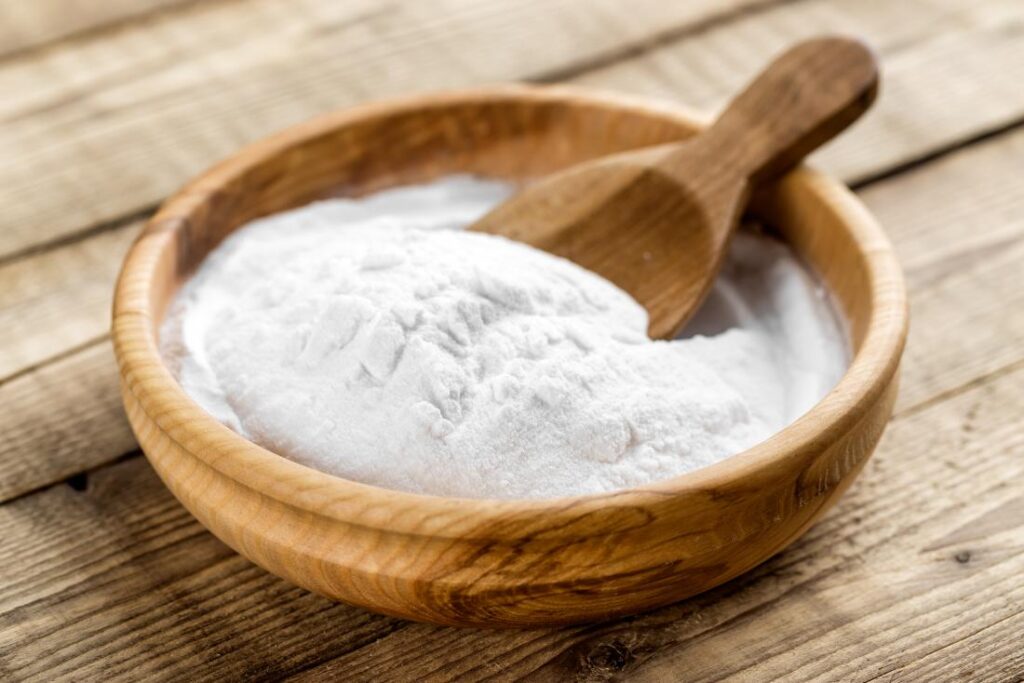
Baking soda indeed has countless practical uses at home and in health.
It’s an all-around household cleaner that can keep your home sanitary.
In dental health, it can disinfect the mouth, combat oral bacteria, and even whiten the teeth.
A team of American researchers reviewed five clinical studies to prove the effects of baking soda on plaque removal and gingivitis management. [17]
According to the pooled results, baking soda dentifrice demonstrated a “significant reduction in 24-hour plaque scores.” [17]
Not only that, but it also leaves a “clean feeling” afterward, which may be due to plaque removal. [17]
Researchers also note that prolonged exposure to a baking soda can even possibly kill oral bacteria and inhibit their growth, helping prevent gum infections and other dental problems. [17]
Learn how to use baking soda to treat gingivitis:
Add ¼ tsp of baking soda to ¼ tsp of water to form a paste. Smear a generous amount on gums and teeth. Use this treatment two to three times a week.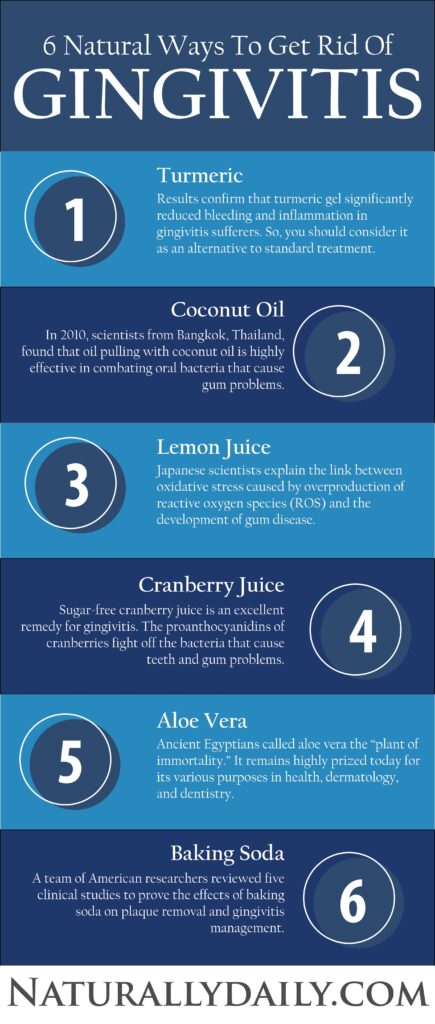
Read More: Baking Soda for Constipation Relief: 4 Quick Remedies
7. Tea Tree Oil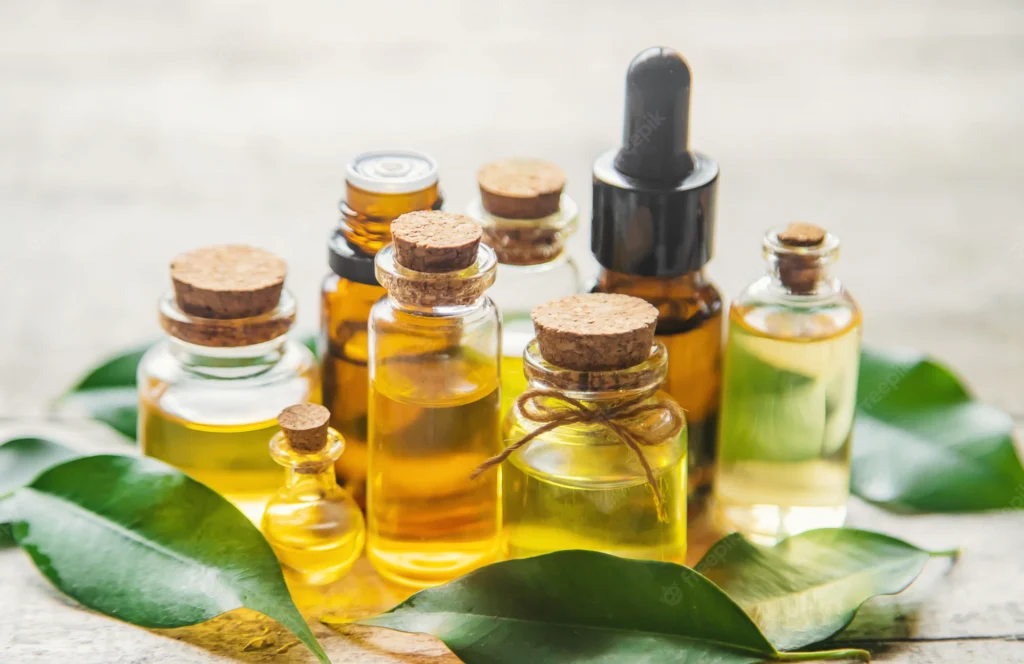
In recent decades, tea tree oil has become famous as an herbal remedy, but its use dates back a hundred years in Australia. [18]
It’s now available worldwide as an anti-inflammatory and antiseptic agent, among many other purposes. [18]
In 2004, Australian researchers proved the efficacy of tea tree oil gel as a solution for dental plaque and chronic cases of gingivitis. [19]
49 healthy and non-smoking individuals with severe gingivitis used either 2.5% tea tree oil gel, 0.2 percent chlorhexidine, or a placebo for four to eight weeks. [19]
Even though tea tree oil did not reduce the amount of dental plaque, it was highly influential in decreasing the inflammation of the gums and providing relief. [19]
Furthermore, no one reported any side effects after using tea tree oil gel. [19]
Tea tree oil also inhibits the activities of various oral bacteria strains. [20]
By preventing oral bacteria from growing and spreading, tea tree oil can reduce the risk of oral infection.
So, researchers recommend tea tree oil to alleviate chronic gingivitis and maintain oral hygiene. [19, 20]
Directions to use tea tree oil for gingivitis:
Add 5 drops of tea tree oil to toothpaste. Mix well. Brush teeth with this mixture three times a day.
Read More: 11 Effective Ways to Use Tea Tree Oil for Warts
8. Clove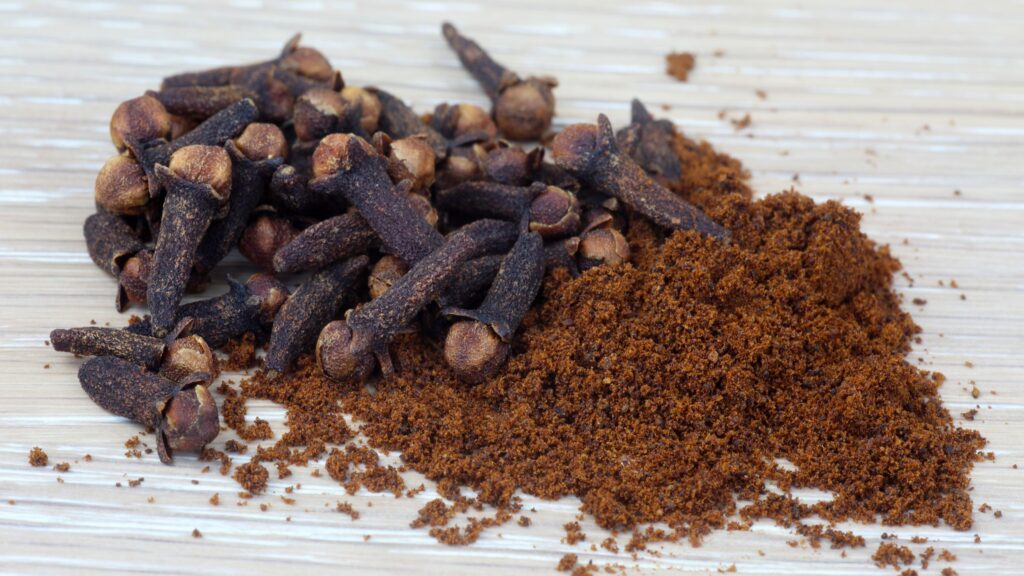
Eugenol in clove oil is famous for its essential role in dental health, relieving gum pain, reducing gum inflammation, and serving as a mild anesthetic during a root canal. [21]
Clove oil also contains flavonoids like rhamnetin and kaempferol, which also work as anti-inflammatory agents. [21]
It’s no surprise that clove oil is quite famous as an ingredient in dental health products like mouthwashes.
A 2014 comparative study analyzed the anti-gingivitis and anti-plaque effects of an herbal mouthwash that included clove oil and a commercial mouth rinse product. [22]
For 21 days, 40 patients with gum problems received either the herbal mouthwash or the commercial mouth rinse. [22]
Findings reveal that although there was no difference in the efficacy of the two products in reducing gum inflammation, the herbal mouthwash was superior to the commercial product in combating oral bacteria. [22]
Both products were helpful as “anti-plaque and anti-gingivitis agents” and could provide immediate results in as quickly as 21 days.
Here’s how you can use clove to get rid of gingivitis:
Take 5 drops of clove oil, 2 drops of basil oil, 2 drops of tea tree oil, and one tsp of olive oil and combine them all. Rub oil mixture on your gums. Let it sit for three to five minutes. Rinse with warm water. Repeat every day for one to two weeks.
9. Peppermint
If you think that the only thing peppermint can do for your oral health is to freshen up your breath, you’re wrong.
It can also help reduce gum bleeding and inflammation.
Research conducted at the Ibirapuera University in Brazil indicates that an herbal dentifrice-containing peppermint reduced gingivitis after 28 days of usage. [23]
The clinical trial involved 48 volunteers with established gingivitis. [23]
Several studies show that peppermint has strong remedial effects on oral bacteria, preventing them from forming a microbial biofilm that causes gum problems. [24, 25, 26]
One of these studies revealed that peppermint could successfully suppress the activities of Streptococcus pyogenes and Streptococcus mutans within three minutes or less after exposure. [24]
All these findings suggest that you should use peppermint as a natural remedy for gingivitis and other dental issues.
Try this simple process of using peppermint to relieve gingivitis:
Soak one tablespoon of peppermint leaves in a cup of warm water for half an hour. The swish solution in your mouth for two minutes. Spit it out. Repeat twice a day for up to two weeks.
Read More: 12 Uses and Health Benefits of Peppermint Oil
10. Basil
It’s not uncommon to find basil in the kitchens of many people.
This herb is famous for adding unique flavor and aroma to all dishes.
Did you know that it can also benefit your oral health?
Scientists conducted a laboratory test in 2009 to evaluate the antimicrobial effects of basil on 29 strains of disease-causing bacteria. [27]
They found it helpful in controlling oral pathogens, whether in its pure form or when someone included it in oral products like toothpaste or mouthwash. [27]
It works even on resistant bacterial strains that everyday dental products could no longer be in check. [27]
A more recent study published in the Annals of Biological Research in 2012 reports that among essential oils, basil has substantial antimicrobial effects on oral germs such as Staphylococcus aureus and Candida albicans. [28]
How to use basil to cure gingivitis:
Boil one tsp of basil leaves in one cup of water. Remove from heat. Let it cool. Gargle with this solution. Use this remedy twice a day for one to two weeks.
11. Guava Leaves
Do you love snacking on guava?
You’ll love it, even more, when you discover its plethora of health benefits.
Fact is, guava is famous for having an “enormous wealth of medicinal value,” thanks to its antimicrobial, antioxidant, anti-inflammatory, and antimutagenic properties. [29]
Scientists from India took a close look at the potential of guava leaves in treating gingivitis and discovered that it was indeed highly beneficial for people suffering from this gum problem. [29]
Guava leaves are an excellent gingivitis treatment as they actively destroy oral bacteria such as Staphylococcus aureus. [29]
They work by disrupting the bacterial growth cycle, development, and adherence to teeth and gums. [29]
Other studies confirm guava’s antimicrobial effects on other oral microorganisms, including Streptococcus mutans and Candida albicans. [30, 31]
This herbal remedy doesn’t only prevent and treat bacterial infections in the mouth but also addresses oral health issues due to fungi.
The direction of using guava leaves for gingivitis:
Wash ¼ cup of guava leaves thoroughly. Boil in 2 cups of water. Use this solution for rinsing your mouth. Brush teeth afterward. Follow this remedy three times a week.
Read More: 6 Amazing Birch Leaf Benefits and Uses You Didn’t Know!
12. Neem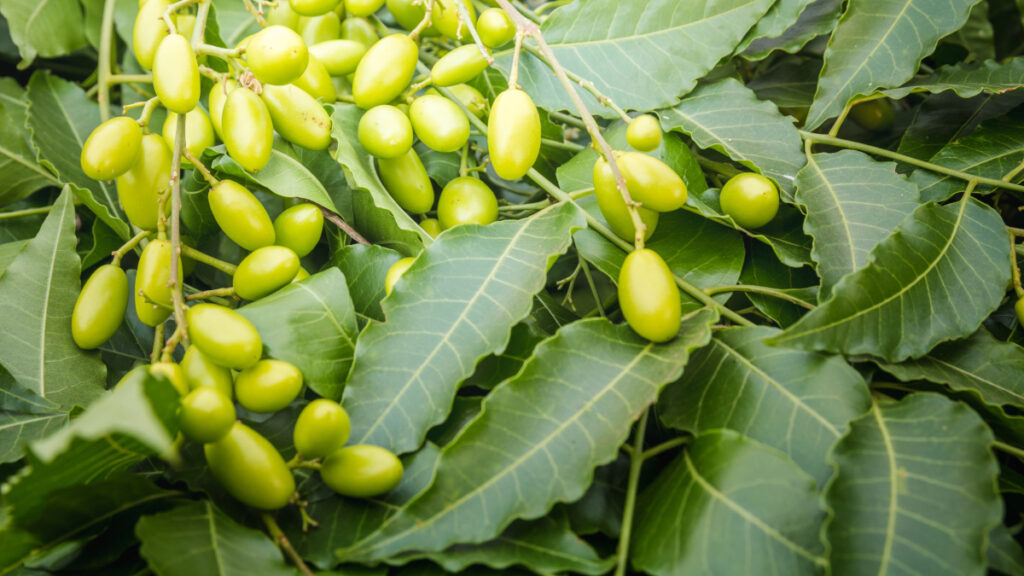
In India, people have been using neem to cure diseases for many decades. [32]
Dentists considered it a helpful remedy, thanks to its antiseptic properties. [32]
One of the oral issues it can help treat is gum infection or gingivitis.
To assess its efficacy as a gingivitis treatment, researchers divided 45 subjects into three groups. [32]
The first group received 15 ml of neem-based mouth rinse; the second group used 15 ml of chlorhexidine mouthwash, and the third group used a saline solution. [32]
All the participants had to use their assigned treatments twice a day. [32]
Bleeding and inflammation were lower in the first and second groups, indicating that neem was just as effective as chlorhexidine. [32]
However, compared to chlorhexidine, the neem mouthwash caused fewer side effects. [32]
What You’ll Need:
Rinse the ¼ cup of neem leaves in running water. Add to 2 cups of water. Bring to a boil. Swish the solution for a few seconds. Do this procedure twice a day for two to three weeks.
Read More: How to Get Rid of Rash Naturally: 26 Step-by-Step Remedies
13. Green Tea
Green tea has long been famous as a weight loss aid.
Studies have shown that frequent intake of this herbal tea can help boost the metabolism and suppress the appetite.
But people should know there’s more to green tea than dropping unwanted pounds.
For your dental health, for example, it can help resolve the issue of gingivitis.
In a 2012 Journal of Pharmaceutical Sciences study, 25 high school female students with plaque-induced gingivitis randomly received either 5 ml of green tea or saline solution twice a day. [33]
Results reveal that the gum condition of the group treated with green tea mouthwash improved more dramatically than in the other group. [33]
Researchers recommend more studies to be done on this matter using larger groups. [33]
How to prepare green tea to cure gingivitis:
Boil one cup of water in a pot. Pour water into a cup. Add one tsp of green tea leaves or bag. Cover the cup and steep for 15 to 20 minutes. Let the tea cool down. Rinse your mouth with the solution for a few seconds. Spit it out. Rinse your mouth with water. Do this technique twice a day for up to one month.
14. Salt & Warm Water Gargle
A saltwater gargle is one of the most effective first-line treatments people have used for many years.
Washing your mouth with salt water helps ease the food particles and debris that may stick between your teeth. If you don’t remove those food particles, they will create cavities, leading to infections and severe tooth loss.
Salt water acts as an antibacterial. The antimicrobial properties of salt can soothe your gum while reducing the swelling due to gingivitis. [34]
Saltwater can also decrease inflammation, ease a sore throat, and boost healing.
Here’s how you can reduce inflammation using salt water:
Take a glass of lukewarm water; make sure it’s not too hot. Add one tablespoon of salt to it. After brushing your teeth, rinse with this solution. Continue this procedure at least 3-4 times daily, particularly after each meal.
Read More: Himalayan Salt Lamp Benefits: 19 Reasons to Buy One
15. Cayenne Powder
Gingivitis causes inflammation in your gums at the early stage but can be a reason behind tooth loss if you’re not careful.
Regular use of cayenne pepper can treat issues like swollen gums, bad breath, and bleeding from gums.
Cayenne pepper is rich in capsaicin, a pain-relieving agent that eases a severe toothache you may have due to gingivitis. [35]
It can give you comfort and stop bacteria from growing to prevent further gum diseases.
What You’ll Need:
Take your regular toothpaste and add a pinch of cayenne pepper. Brush your teeth with the mixture every day until you heal properly.
Read More: 11 Home Remedies for Wisdom Tooth Pain for Immediate Relief
When to See A Dentist
Surely you will get benefits from the remedies described above. But there can be a need for a dentist’s consultation sometimes.
Generally, it takes around 2 weeks for your gingivitis to heal completely. But, you must go and consult a dentist if you go through any of the followings:
- Severe toothaches
- Too much irritation or inflammation in your gums
- Extreme bad breath
- Extremely swollen gums
- Too much bleeding in your gums
Checking all the symptoms, your dentist will take the necessary actions.
He may prescribe some medications or further procedures depending on your situation.
Some Tips and Precautions
If your case is too severe, it can take longer; Stay in contact with your dentist in such cases.
- Take better care of teeth and mouth.
- Brush your teeth, taking time at least twice daily
- Use brushes that have soft bristles
- Try to use toothpaste that contains fluorides
- Use a natural mouthwash once or twice a day
- Use dental floss to floss your teeth once a day
- Gurgle with regular or lukewarm water a few times throughout the day
- Quit smoking
- Maintain a healthy diet rich in vitamins and minerals
- Drink lots of fresh water regularly
- Visit your dentist for regular check-ups
Bottom Line
It is NEVER advisable to ignore dental issues like gingivitis.
Your teeth are essential to leading a healthy life. Plus, it is vital to maintain a healthy eating habit.
You don’t want the lousy condition to worsen and progress into a more severe disease before you do something about it.
Get rid of gingivitis immediately with the help of these safe and effective natural solutions.
Treat your teeth thoroughly and enjoy a healthy life with a brighter smile.
Was the article helpful to you? We hope it was.
If you have any questions or confusion about this article, feel free to ask us.
Also, don’t forget to leave a comment in our comment section below.
Read Next: 15 Home Remedies for Toothache for Instant Relief

